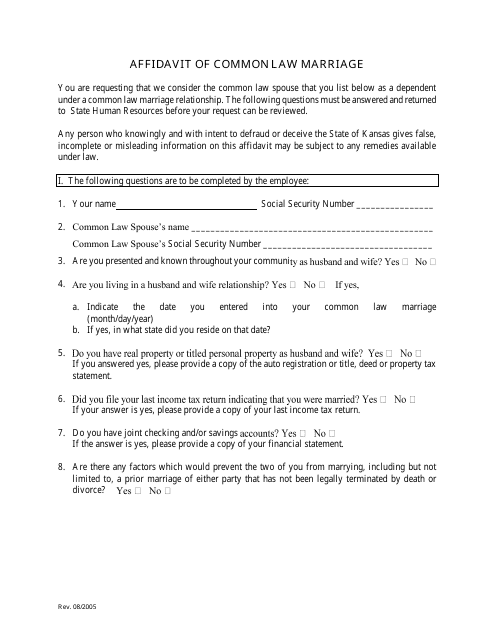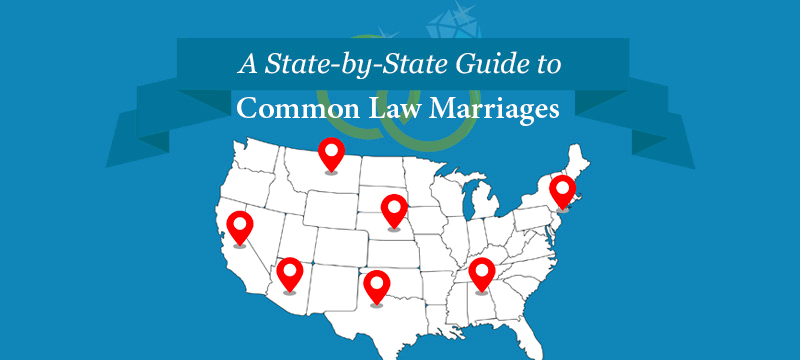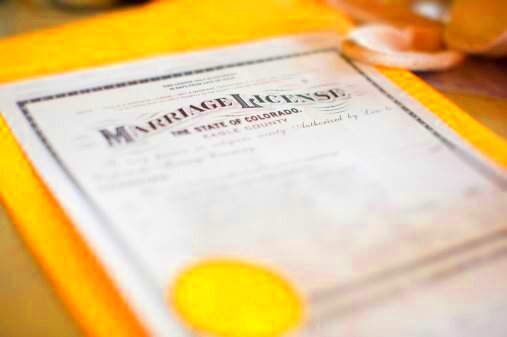Exploring Common Law Marriage in Kansas
Common law marriage can be quite puzzling for those who are not well versed in its intricacies. In essence it refers to a union that doesn’t necessitate a wedding ceremony or a marriage license. Rather it is acknowledged through the couple’s behavior and shared understanding. This form of marriage is commonly observed in regions where partners cohabitate and portray themselves as married without adhering to the conventional marriage procedure.
Based on what I’ve seen people often express their astonishment upon hearing about common law marriages. Particularly when they realize that in certain states these unions hold the same legal status as conventional marriages. It’s akin to a bond that if acknowledged bears the same significance as a marriage that has been officially sanctioned. Nevertheless it’s crucial to note that common law marriage isn’t recognized everywhere and its recognition can differ significantly, across different states.
In Kansas, the law acknowledges common law marriages granting couples similar rights and obligations as those in a traditional marriage. So if you and your significant other fulfill the requirements set by the state your bond can be deemed legally valid even without a wedding ceremony.
Requirements for Common Law Marriage in Kansas

In order to establish a common law marriage in Kansas certain criteria must be fulfilled. Its essential to grasp these prerequisites if you’re contemplating entering into this kind of relationship. Here is a concise summary.
- Mutual Agreement: Both partners must agree to be married. This mutual consent is fundamental and must be present for the marriage to be recognized.
- Co-habitation: The couple must live together in Kansas. While there’s no set time period specified, the couple should have been living together in a manner that reflects a marital relationship.
- Public Recognition: The couple must present themselves as married to the public. This includes referring to each other as spouses and behaving in a manner typical of a married couple.
In my experience meeting these criteria isn’t always a process. It’s crucial for couples to truly blend their lives together and portray themselves as married to steer clear of any legal issues. I’ve come across instances where couples thought they were married only to encounter difficulties when their common law status was scrutinized. Therefore it’s wise to make sure you fulfill all these requirements in a clear and consistent manner.
How to Establish a Common Law Marriage in Kansas

Getting a common law marriage in Kansas requires more than simply living together. Here’s a breakdown to assist you in navigating through this journey.
- Live Together: Begin by cohabiting in Kansas. Make sure your living arrangement is consistent with a marital relationship, with both partners sharing responsibilities and maintaining a joint household.
- Express Your Intent: Clearly communicate your intent to be married. This can be done through conversations and actions that reflect your commitment to each other.
- Public Presentation: Present yourselves as a married couple. This includes using titles like “husband” and “wife” when introducing each other, and ensuring that your public behavior aligns with that of a married couple.
- Document Your Relationship: While not legally required, keeping records of joint financial accounts, shared property, and other evidence of your relationship can help establish your case if needed.
Based on what I’ve seen making sure these steps are genuinely followed can really have an impact. It’s not just about ticking the boxes but also about truly embracing the dedication that marriage signifies. Through conversations with friends and acquaintances I’ve come to realize that showcasing yourselves as a devoted couple both publicly and in your everyday lives is crucial for gaining recognition and respect for your common law marriage.
Legal Rights and Responsibilities of Common Law Marriage

In Kansas common law marriage gives couples similar legal rights and obligations as a regular marriage. This can catch off guard, who are unfamiliar with the idea.
Based on what I have seen and talked about with friends in common law marriages I have come to understand that these couples have certain rights including
- Property Rights: Just like in a traditional marriage, common law spouses may have rights to shared property acquired during the relationship. This includes real estate, vehicles, and other assets.
- Inheritance: Common law spouses are typically entitled to inherit from each other if one partner passes away without a will. However, having a will in place can help clarify intentions and avoid disputes.
- Healthcare Decisions: Common law partners often have the right to make medical decisions for each other if one partner becomes incapacitated, much like in a traditional marriage.
- Spousal Support: In the event of separation, common law spouses may be eligible for spousal support, depending on the circumstances and the length of the relationship.
Nonetheless these rights may be disputed, particularly when the validity of the relationship is called into question. I’ve come across accounts where couples encountered difficulties in substantiating their common law marriage during legal proceedings. Therefore it’s essential to maintain records and engage in transparent communication with legal experts to safeguard your rights effectively.
Differences Between Common Law Marriage and Traditional Marriage
While common law marriage and traditional marriage may appear alike, there are notable distinctions between the two. Recognizing these differences can provide clarity on your rights and the necessary actions you should take.
One significant difference is:
- Formalities: Traditional marriages require a formal ceremony, a marriage license, and registration with the state. Common law marriages, on the other hand, do not require these formalities and are established through the couple’s actions and mutual agreement.
Based on what I’ve observed not having documentation in common law marriages can create misunderstandings or issues. Unlike traditional marriages that have a straightforward legal record common law marriages depend on demonstrating the couples shared intention and public portrayal as a married couple.
Another distinction lies in how marriage is acknowledged across different states. While traditional marriages are widely accepted common law marriages may not receive the same recognition in every state. This can lead to complications if a couple relocates to a state that does not recognize common law marriage.
These distinctions emphasize the significance of couples in common law marriages taking the initiative to grasp their legal situation and keeping documentation that can validate their marital status.
Ending a Common Law Marriage in Kansas
Ending a common law marriage in Kansas is similar to the process of ending a traditional marriage. However it can be a bit more complicated because of how the marriage was formed.
Let’s take a closer look at the essential steps to take when dissolving a common law marriage.
- Legal Separation or Divorce: Just like with a traditional marriage, a common law marriage can be ended through a legal separation or divorce. It’s advisable to consult with a family law attorney to understand your options and ensure that the process is handled correctly.
- Division of Property: Assets and debts acquired during the marriage will need to be divided. This can be similar to the division process in a traditional divorce, but may require additional documentation to establish what was acquired during the marriage.
- Spousal Support: You may be entitled to spousal support depending on the length of the marriage and other factors. Discussing your situation with a legal professional can help clarify your rights and responsibilities.
- Child Custody and Support: If there are children involved, custody arrangements and child support will need to be addressed, just as in a traditional divorce.
Based on my own experiences I’ve noticed that dissolving a common law marriage can come with challenges, both emotionally and legally. This is often because one has to establish the nature of the relationship and the reasons for its dissolution. To make this process easier it’s crucial to communicate openly and seek professional advice.
Common Misconceptions About Common Law Marriage
Common law marriage is often surrounded by a lot of misconceptions that can lead to confusion and misunderstandings. Through my discussions with friends and clients I’ve come across a few persistent myths that seem to accompany this form of marriage.
Here are a few of the myths that people often have.
- Myth: You need to live together for a specific amount of time. Many believe that a set time period is required for a common law marriage to be valid. In reality, Kansas doesn’t specify a minimum duration. Instead, it focuses on the couple’s intent and how they present themselves.
- Myth: You need a formal declaration or ceremony. Unlike traditional marriages, common law marriages don’t require a formal ceremony or written contract. The essence of a common law marriage lies in the mutual agreement and the public representation of the relationship.
- Myth: Common law marriage isn’t legally recognized. Some people think that common law marriage is not legally recognized, but this is not true in Kansas. If all the criteria are met, it holds the same legal weight as a formal marriage.
- Myth: Common law marriage is only for long-term cohabitants. There’s a belief that common law marriage only applies to couples who have lived together for many years. However, it’s more about the nature of the relationship and less about the duration.
Based on my personal experiences and what I’ve heard from others these misunderstandings can create confusion, particularly in situations involving legal matters. It’s crucial to seek information and grasp the legal nuances of common law marriage to steer clear of any potential complications.
How to Prove a Common Law Marriage
Proving the existence of a common law marriage can be quite a challenge, particularly when there are doubts about the relationship’s status. Drawing from my personal experiences and discussions with individuals well versed in this matter here’s a guide on how to establish and demonstrate a common law marriage in Kansas.
- Document Your Relationship: Keep detailed records that demonstrate the nature of your relationship. This can include joint bank accounts, shared property deeds, and other financial documents that show your life together.
- Maintain Consistent Public Representation: Ensure that you and your partner present yourselves as married in public. This means using terms like “husband” and “wife” when referring to each other and behaving as a married couple.
- Gather Affidavits and Witnesses: Collect statements from friends, family, and acquaintances who can attest to your relationship and the way you present yourselves as a married couple.
- Provide Evidence of Shared Responsibilities: Documentation that shows shared responsibilities, such as household duties and financial obligations, can support your claim. Examples include shared utility bills or a joint lease agreement.
From my perspective I have witnessed the impact of well kept records and transparent public portrayal. Having solid proof and uniform behavior plays a crucial role in establishing the legitimacy of a common law marriage, particularly when dealing with legal obstacles.
Frequently Asked Questions
The concept of marriage often brings up a lot of inquiries especially for people who are not well versed in its legal complexities. Here are some commonly asked questions along with responses derived from my personal knowledge and the insights of those in my circle.
- Is a common law marriage recognized if we move to another state? It depends on the state. While Kansas recognizes common law marriages, other states may not. It’s important to check the laws of the state you move to, as your marital status may not be recognized everywhere.
- Can we get divorced if we’re in a common law marriage? Yes, you can. The process of ending a common law marriage is similar to a traditional divorce and involves dividing property and addressing spousal support and custody issues if applicable.
- Do we need to file any paperwork to establish a common law marriage? No formal paperwork is required to establish a common law marriage in Kansas. However, having documentation that proves the nature of your relationship can be helpful if legal questions arise.
- What if we didn’t intend to be married, but people think we are? Intention is a key factor in common law marriages. If you did not intend to be married and are unable to prove mutual intent, it may be challenging to establish a common law marriage legally.
These inquiries reveal misconceptions and worries regarding common law marriage. Clearing up these matters can assist in setting realistic expectations and ensuring that you are aware of your rights and obligations.
Conclusion
Grasping the concept of marriage can be akin to discovering a treasure trove particularly if you’re venturing into its intricacies for the first time. Based on my own encounters and conversations with others it’s evident that this form of union holds the potential to be just as legally significant and profound as a conventional marriage, given that the circumstances align.
If you are thinking about entering into a law marriage or are already in one it’s important to understand the rights and obligations that come with it. Make sure you fulfill all the legal criteria and keep thorough documentation to validate your marital status. Like with any issue seeking advice from a lawyer can offer valuable insights and assist you in dealing with any challenges.
Ultimately what truly counts is the level of commitment and understanding shared between partners. While common law marriage may seem unconventional it holds the same emotional and legal importance as any other type of marriage. Therefore make sure to stay updated maintain documentation and approach your relationship with the sincerity it warrants.


